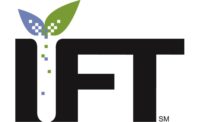United State of Mass Confusion
Just in the last couple of years, there have been a number of regulatory initiatives come to life that effect just about every corner of the bakery industry, says contributing columnist, Jeff Dearduff. Read on to find out how you can stay ahead of the game.

If it weren’t enough to be making heads and tails out of the economy, gas prices and our country’s political scene, now the baking industry is getting wacked from every corner of the regulatory world. It’s absolutely amazing how you can be doing the right things, caring for your consumers and providing wholesome food, and out of the blue, new rules and regulations set you back and remind you that no matter how good you think you are, the regulators think otherwise.
Just in the last couple of years, we have seen a number of regulatory initiatives come to life that affect just about every corner of the business.
For starters, there’s the food safety situation. Our customers used to be happy with a plant that was successfully audited by our baking industry-based service providers. Since certain recall incidents, however, customers now require audits from a large variety of providers. In some cases, you, the baker, can deal with several different auditing outfits, in which each has its own version of the Global Food Safety Initiative (GFSI) requirements. In this case, you not only have to deal with the variations of interpretation of the rules, but you also have to deal with the individual auditor’s interpretation. This can be very confusing.
Then there’s workplace safety, specifically the full court press related to electrical safety and the National Fire Protection Association (NFPA) 70E Arc Flash assessments and practices. We have worked in these plants and around these electrical devices for a long time without incident, but now we have to look at the entire situation differently. Everything from how we enter electrical panels to how we protect our workers requires serious thought and action. Understanding everything we have to do here can make your head spin.
Right around the corner are the new Spill Prevention, Control and Countermeasures (SPCC) requirements, designed to bring our food oil storage to a new place. Since 2005 or so, we should have all been preparing our plans, getting the plans certified by a professional engineer and then planning to execute how to prevent oil spillage from a storage tank from entering the waterways. Oh yeah, don’t forget about secondary containment, where applicable.
The original SPCC regulations were written for the petroleum industry to prevent spills into waterways, but for bakeries, the waterway starts at the top of the floor drain. Beginning in November, your food oil storage tanks must meet these requirements.
All other bulk liquid food items will remain under the wastewater permit, as they always have, and that permit will continue to determine what steps you take in keeping liquid sugar and cream yeast from entering their systems. Now that we have our bulk liquids governed by two different regulators, your eyes will cross just trying to understand the different rules.
The Environmental Protection Agency’s Clean Air Act is also getting attention once again, at least from the regulators’ perspective. Everything from stringent new source reviews to permit renewal scrutiny, and now a renewed look at the refrigeration rules, are making for an interesting rest of the year. Did you know that the new refrigerant leak rate rule says that if you identify and repair a leak three times on the same system, you will be required to replace the entire system? Hold onto your brain cells as you try to figure out some of this stuff.
So what do you need to do to be prepared for the different tasks and details within all of these different audits and regulations? In the past, we have all stood tall and were able to do enough just to get by. Today though, the demands bring us to a completely different state of mind and confusion.
My recommendation for anyone who has to deal with more than one regulatory agency or more than one auditing company at a time is to reach out and find a specialist, consultant or industry association that can guide you to do the right things when dealing with these groups. Yes, it will cost you some money to hire these folks-–money that’s probably not in your budget–but neither are fines, penalties or loss of business from not being able to comply in one way or the other.
These specialists and consultants have typically experienced much of what you are going through or do they know enough about the overall schemes of the regulators and auditors that they can put together a plan and reach out to their own networks for additional help.
You can’t do this by yourselves any more-the rules are just too confusing and laden with tricky language that will keep you up at night if you try to take it on alone. Build a team and unite to understand, plan and take action that will satisfy the regulators, auditors and your customers. The money spent will be money saved when you can avert a negative action that could come from non-compliance.

If it weren’t enough to be making heads and tails out of the economy, gas prices and our country’s political scene, now the baking industry is getting wacked from every corner of the regulatory world. It’s absolutely amazing how you can be doing the right things, caring for your consumers and providing wholesome food, and out of the blue, new rules and regulations set you back and remind you that no matter how good you think you are, the regulators think otherwise.
Just in the last couple of years, we have seen a number of regulatory initiatives come to life that affect just about every corner of the business.
For starters, there’s the food safety situation. Our customers used to be happy with a plant that was successfully audited by our baking industry-based service providers. Since certain recall incidents, however, customers now require audits from a large variety of providers. In some cases, you, the baker, can deal with several different auditing outfits, in which each has its own version of the Global Food Safety Initiative (GFSI) requirements. In this case, you not only have to deal with the variations of interpretation of the rules, but you also have to deal with the individual auditor’s interpretation. This can be very confusing.
Then there’s workplace safety, specifically the full court press related to electrical safety and the National Fire Protection Association (NFPA) 70E Arc Flash assessments and practices. We have worked in these plants and around these electrical devices for a long time without incident, but now we have to look at the entire situation differently. Everything from how we enter electrical panels to how we protect our workers requires serious thought and action. Understanding everything we have to do here can make your head spin.
Right around the corner are the new Spill Prevention, Control and Countermeasures (SPCC) requirements, designed to bring our food oil storage to a new place. Since 2005 or so, we should have all been preparing our plans, getting the plans certified by a professional engineer and then planning to execute how to prevent oil spillage from a storage tank from entering the waterways. Oh yeah, don’t forget about secondary containment, where applicable.
The original SPCC regulations were written for the petroleum industry to prevent spills into waterways, but for bakeries, the waterway starts at the top of the floor drain. Beginning in November, your food oil storage tanks must meet these requirements.
All other bulk liquid food items will remain under the wastewater permit, as they always have, and that permit will continue to determine what steps you take in keeping liquid sugar and cream yeast from entering their systems. Now that we have our bulk liquids governed by two different regulators, your eyes will cross just trying to understand the different rules.
The Environmental Protection Agency’s Clean Air Act is also getting attention once again, at least from the regulators’ perspective. Everything from stringent new source reviews to permit renewal scrutiny, and now a renewed look at the refrigeration rules, are making for an interesting rest of the year. Did you know that the new refrigerant leak rate rule says that if you identify and repair a leak three times on the same system, you will be required to replace the entire system? Hold onto your brain cells as you try to figure out some of this stuff.
So what do you need to do to be prepared for the different tasks and details within all of these different audits and regulations? In the past, we have all stood tall and were able to do enough just to get by. Today though, the demands bring us to a completely different state of mind and confusion.
My recommendation for anyone who has to deal with more than one regulatory agency or more than one auditing company at a time is to reach out and find a specialist, consultant or industry association that can guide you to do the right things when dealing with these groups. Yes, it will cost you some money to hire these folks-–money that’s probably not in your budget–but neither are fines, penalties or loss of business from not being able to comply in one way or the other.
These specialists and consultants have typically experienced much of what you are going through or do they know enough about the overall schemes of the regulators and auditors that they can put together a plan and reach out to their own networks for additional help.
You can’t do this by yourselves any more-the rules are just too confusing and laden with tricky language that will keep you up at night if you try to take it on alone. Build a team and unite to understand, plan and take action that will satisfy the regulators, auditors and your customers. The money spent will be money saved when you can avert a negative action that could come from non-compliance.
Looking for a reprint of this article?
From high-res PDFs to custom plaques, order your copy today!







